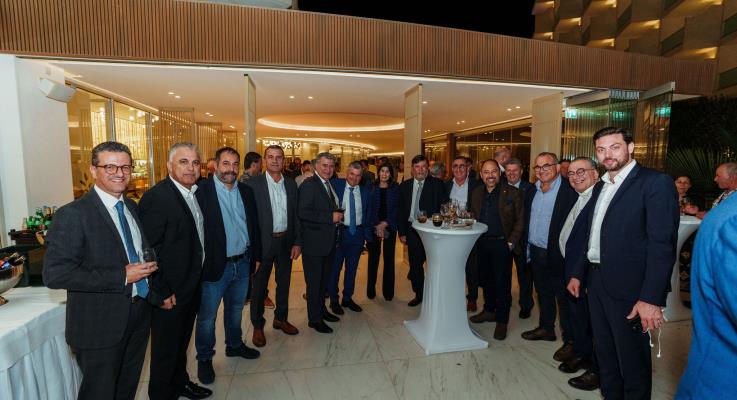Ioannou says Famagusta return would lay foundation for peace and freedom
Famagusta mayor Simos Ioannou used the district’s annual business assembly this week to call for the city’s return, saying it could become “the foundation of peace and freedom”.
His address, read out by municipal councillor Dinos Toumazis at the Cyprus Chamber of Commerce and Industry (Keve) gathering in Ayia Napa, also stressed that local businesses “managed to survive the refugee crisis” and continued to grow, proving that “the spirit of Famagusta thrives despite the adversities”.
He added that their contribution “even after the refugee crisis, is very important”, supporting citizens, organised groups and the municipality.
However, Ioannou said the occupation “remains a powerful factor of destabilisation and potential new conflicts”, while arguing that with the city’s return, residents should be able to pursue “the unhindered continuation of life, creation, productivity and joy, without occupation armies and dividing lines”.
The event also featured Energy Minister George Papanastasiou, Keve’s president Stavros Stavrou and Famagusta chamber’s president Charalambos Manoli, who focused on the district’s role in Cyprus’ economy and tourism.
Stavrou outlined the broader outlook, noting growth of around 3 per cent of GDP, unemployment near 5–6 per cent, inflation close to 2 per cent and public debt below 60 per cent of GDP.
However, he said progress “is not a given”, adding that Cyprus needed a clearer plan and greater cooperation, with the chamber acting as a bridge between businesses, society and the state.
Stavrou said that Cyprus should be “competitive and extroverted, green and digitally mature, socially just and regionally balanced”.
Turning to Famagusta itself, Stavrou called it “a symbolic city”, saying Varosha “remains a living part of our national consciousness” and that its return, under international law, was both a matter of justice and an economic opportunity.
Meanwhile, he said the free district remains one of the country’s most dynamic areas, as Ayia Napa, Protaras and surrounding communities host hundreds of thousands of visitors each year.
Even so, he noted that seasonality continues to hold back the region, arguing it was unacceptable for “billions of euros of investments” in tourism to remain idle for months.
For his part, Manoli said that “51 years after the Turkish invasion, Famagusta remains forcibly separated from its legitimate residents”, and that the city’s return under UN administration was a “non-negotiable right”.
He listed the main pressures facing businesses, high energy and borrowing costs, inflation and labour shortages, and called for measures such as tax and financial incentives to support small and medium-sized enterprises (SMEs).
He also said tourism in the free district remains a key pillar of the economy and that long-standing urban distortions should be removed to support development.
Furthermore, he referred to a series of projects announced earlier this year, including the Ayia Napa beach upgrade, a new urban park, school modernisations, sports facility improvements and the completed Kokkinokremmou water pipeline and 25-kilometre network.
Manoli concluded by reaffirming the chamber’s commitment to “fighting for the return to Famagusta and all occupied territories”, and to being present where decisions are taken that shape the district’s future.






Click here to change your cookie preferences